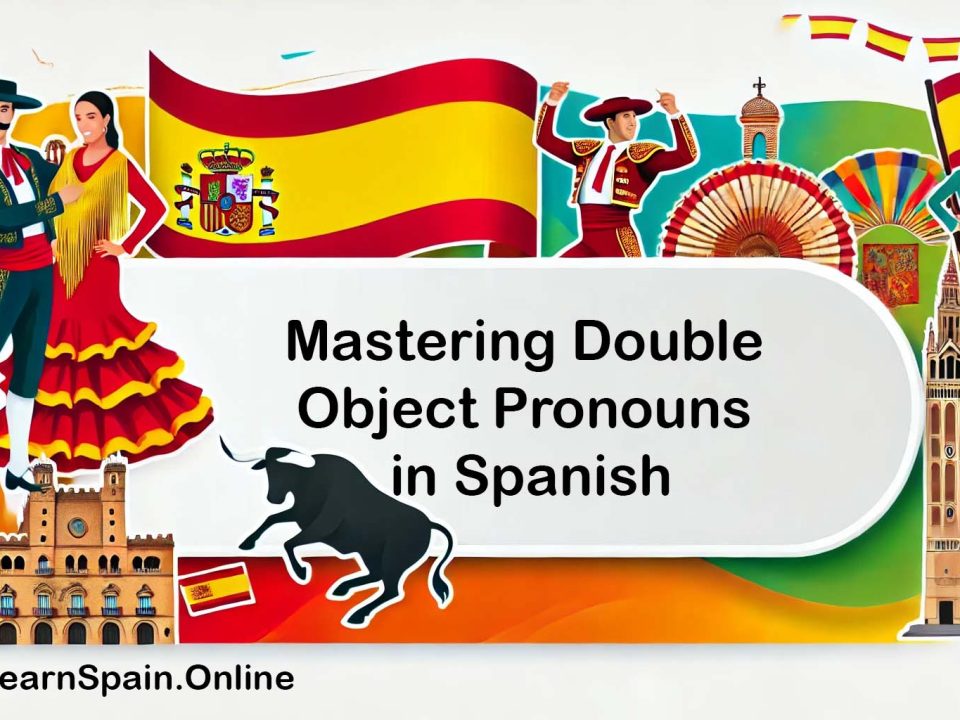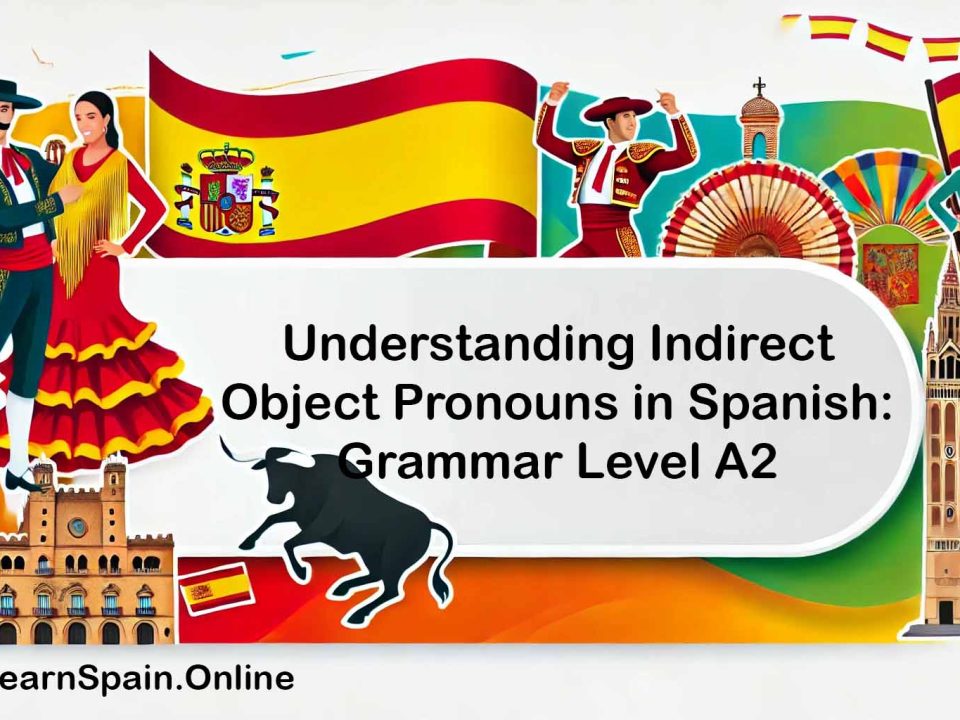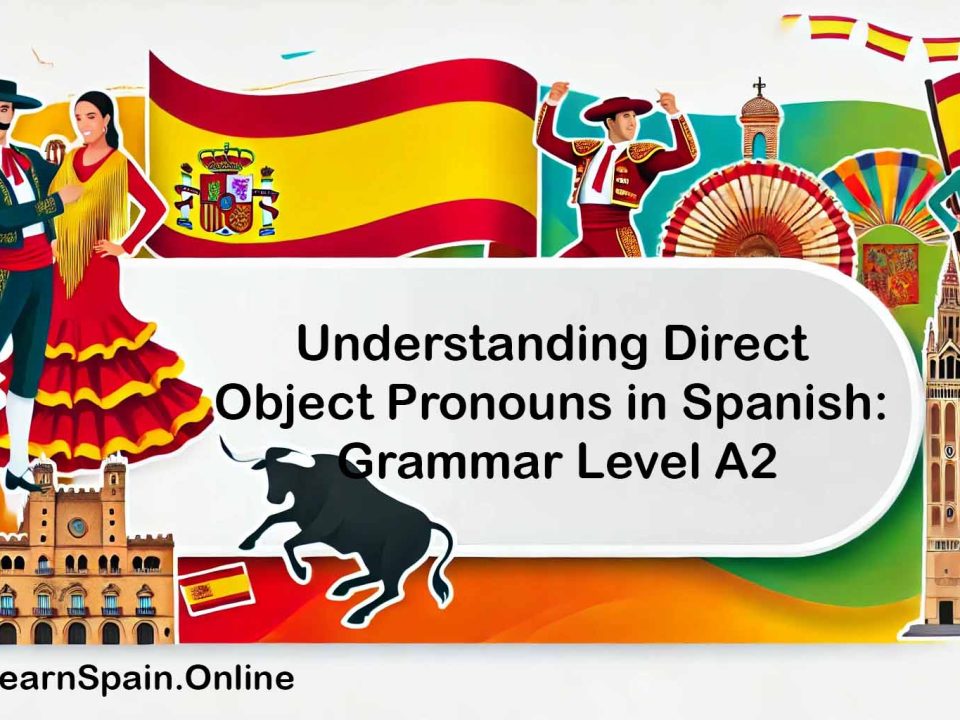
Introduction to the Past Tense (Preterite) in Spanish
July 22, 2024
The Verb “Hacer” in the Past Tense: A Comprehensive Guide
July 23, 2024Regular and Irregular Preterite Verbs in Spanish
Mastering the preterite tense in Spanish is essential for anyone learning the language. The preterite tense is used to describe actions that have been completed in the past. It is one of the most common past tenses in Spanish and is crucial for effective communication. This guide will explain the conjugation of both regular and irregular preterite verbs, provide numerous examples, and help you understand their usage.
Regular Preterite Verbs
Regular verbs in Spanish follow specific patterns based on their infinitive endings (-ar, -er, -ir). These patterns remain consistent across different verbs within each group.
-AR Verbs
For -AR verbs, the preterite endings are as follows:
- Yo: -é
- Tú: -aste
- Él/Ella/Usted: -ó
- Nosotros/Nosotras: -amos
- Vosotros/Vosotras: -asteis
- Ellos/Ellas/Ustedes: -aron
Example: Hablar (to speak)
- Yo hablé (I spoke)
- Tú hablaste (You spoke)
- Él/Ella/Usted habló (He/She/You spoke)
- Nosotros/Nosotras hablamos (We spoke)
- Vosotros/Vosotras hablasteis (You all spoke)
- Ellos/Ellas/Ustedes hablaron (They/You all spoke)
-ER Verbs
For -ER verbs, the preterite endings are:
- Yo: -í
- Tú: -iste
- Él/Ella/Usted: -ió
- Nosotros/Nosotras: -imos
- Vosotros/Vosotras: -isteis
- Ellos/Ellas/Ustedes: -ieron
Example: Comer (to eat)
- Yo comí (I ate)
- Tú comiste (You ate)
- Él/Ella/Usted comió (He/She/You ate)
- Nosotros/Nosotras comimos (We ate)
- Vosotros/Vosotras comisteis (You all ate)
- Ellos/Ellas/Ustedes comieron (They/You all ate)
-IR Verbs
For -IR verbs, the preterite endings are the same as for -ER verbs:
- Yo: -í
- Tú: -iste
- Él/Ella/Usted: -ió
- Nosotros/Nosotras: -imos
- Vosotros/Vosotras: -isteis
- Ellos/Ellas/Ustedes: -ieron
Example: Vivir (to live)
- Yo viví (I lived)
- Tú viviste (You lived)
- Él/Ella/Usted vivió (He/She/You lived)
- Nosotros/Nosotras vivimos (We lived)
- Vosotros/Vosotras vivisteis (You all lived)
- Ellos/Ellas/Ustedes vivieron (They/You all lived)
Irregular Preterite Verbs
Irregular preterite verbs do not follow the regular conjugation patterns and must be memorized. Here are some of the most common irregular verbs in the preterite tense:
Ser and Ir
The verbs “ser” (to be) and “ir” (to go) share the same conjugation in the preterite tense:
- Yo fui (I was/went)
- Tú fuiste (You were/went)
- Él/Ella/Usted fue (He/She/You was/went)
- Nosotros/Nosotras fuimos (We were/went)
- Vosotros/Vosotras fuisteis (You all were/went)
- Ellos/Ellas/Ustedes fueron (They/You all were/went)
Tener
Tener (to have)
- Yo tuve (I had)
- Tú tuviste (You had)
- Él/Ella/Usted tuvo (He/She/You had)
- Nosotros/Nosotras tuvimos (We had)
- Vosotros/Vosotras tuvisteis (You all had)
- Ellos/Ellas/Ustedes tuvieron (They/You all had)
Hacer
Hacer (to do/make)
- Yo hice (I did/made)
- Tú hiciste (You did/made)
- Él/Ella/Usted hizo (He/She/You did/made)
- Nosotros/Nosotras hicimos (We did/made)
- Vosotros/Vosotras hicisteis (You all did/made)
- Ellos/Ellas/Ustedes hicieron (They/You all did/made)
Estar
Estar (to be)
- Yo estuve (I was)
- Tú estuviste (You were)
- Él/Ella/Usted estuvo (He/She/You was)
- Nosotros/Nosotras estuvimos (We were)
- Vosotros/Vosotras estuvisteis (You all were)
- Ellos/Ellas/Ustedes estuvieron (They/You all were)
Decir
Decir (to say)
- Yo dije (I said)
- Tú dijiste (You said)
- Él/Ella/Usted dijo (He/She/You said)
- Nosotros/Nosotras dijimos (We said)
- Vosotros/Vosotras dijisteis (You all said)
- Ellos/Ellas/Ustedes dijeron (They/You all said)
Examples in Sentences
Here are some examples of both regular and irregular verbs in the preterite tense used in sentences:
- Ayer hablé con mi amigo. (Yesterday I spoke with my friend.)
- Comimos en un restaurante el sábado pasado. (We ate at a restaurant last Saturday.)
- Vivieron en España durante dos años. (They lived in Spain for two years.)
- Fui al mercado ayer. (I went to the market yesterday.)
- Tuve un perro cuando era niño. (I had a dog when I was a child.)
- Hizo su tarea anoche. (He/She did his/her homework last night.)
- Estuvimos en la fiesta hasta tarde. (We were at the party until late.)
- Dijeron que vendrían a la reunión. (They said they would come to the meeting.)
Time Expressions Commonly Used with the Preterite
Using the correct time expressions can help clarify when an action took place. Here are some common time expressions used with the preterite tense:
- Ayer (yesterday)
- Ayer fui al cine. (Yesterday I went to the cinema.)
- El otro día (the other day)
- El otro día compré un libro. (The other day I bought a book.)
- La semana pasada (last week)
- La semana pasada terminé el proyecto. (Last week I finished the project.)
- El mes pasado (last month)
- El mes pasado viajamos a México. (Last month we traveled to Mexico.)
- El año pasado (last year)
- El año pasado aprendí a tocar la guitarra. (Last year I learned to play the guitar.)
Practice Exercises
To reinforce your understanding of regular and irregular preterite verbs, try these exercises:
- Translate the Sentences: Write the following sentences in Spanish using the preterite tense:
- I ate an apple yesterday.
- You (informal) went to the store.
- She did her homework.
- We had a great time.
- They said they were tired.
- Complete the Sentences: Fill in the blanks with the correct preterite form of the verb:
- Ayer, yo __ (ir) al supermercado.
- El mes pasado, ellos __ (hacer) un pastel.
- Tú __ (hablar) con el profesor.
- Nosotros __ (tener) una fiesta.
- Ella __ (comer) en un restaurante.
- Match the Verbs: Match the Spanish preterite verbs with their English equivalents:
- Hablé
- Comí
- Fuimos
- Hizo
- Tuvieron
- He/She did/made
- We went
- I ate
- I spoke
- They had
- Conjugate the Verbs: Conjugate the following verbs in the preterite tense:
- Vivir
- Estar
- Decir
- Comer
- Tener
Conclusion
Understanding and mastering regular and irregular preterite verbs in Spanish is essential for effective communication, as it allows you to describe completed actions and events in the past. By familiarizing yourself with the conjugation patterns and practicing regularly, you will gain confidence in using these verbs correctly.Integrate these preterite verbs into your daily Spanish practice, and soon you’ll be able to discuss past events with ease and accuracy. ¡Buena suerte! (Good luck!)
Links:
Spanish Grammar
Spanish Vocabulary
Spanish Listening
Spanish Stories



